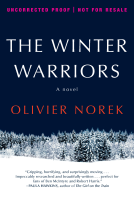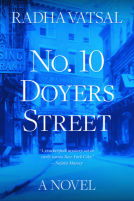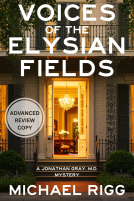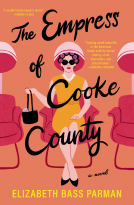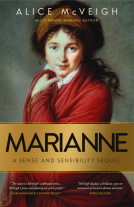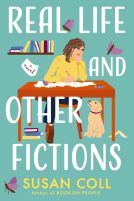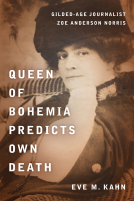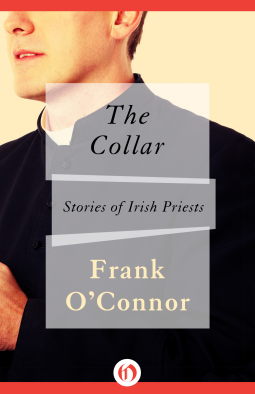
The Collar
Stories of Irish Priests
by Frank O'Connor
This title was previously available on NetGalley and is now archived.
Send NetGalley books directly to your Kindle or Kindle app
1
To read on a Kindle or Kindle app, please add kindle@netgalley.com as an approved email address to receive files in your Amazon account. Click here for step-by-step instructions.
2
Also find your Kindle email address within your Amazon account, and enter it here.
Pub Date Aug 12 2014 | Archive Date Nov 12 2014
Open Road Integrated Media | Open Road Media
Description
Over the course of his long and distinguished career, Frank O’Connor wrote many stories about priests. Some of his most iconic characters are men of the cloth, and few writers have portrayed the unique demands of the priesthood with as much empathy, honesty, and wit. This collection, edited and introduced by his widow, Harriet O’Donovan Sheehy, brings together the best of O’Connor’s short fiction on the subject.
From “An Act of Charity,” the ironically titled tale of church efforts to cover up a curate’s suicide, to “The Sentry,” an exquisite blend of drama and satire sparked by the British army’s invasion of a priest’s onion patch, these sixteen stories capture the full range of pressures visited on the Irish clergy. “Peasants” is a lesson in what happens when a man of God places law and order above compassion, while “Achilles’ Heel” reveals that even a bishop can be rendered powerless by his housekeeper. “The Frying-pan” and “The Wreath” are sad and lovely portraits of priests caught between their vows of celibacy and their natural desire for human connection.
In the rituals and contradictions of the priesthood, Frank O’Connor found one of his greatest motifs. The Collar showcases an artist at the peak of his powers and shines a brilliant light on a fascinating world too often hidden in shadow and sentiment.
Available Editions
| EDITION | Other Format |
| ISBN | 9781497655065 |
| PRICE | $14.99 (USD) |
Average rating from 4 members
Featured Reviews
 melvin u, Reviewer
melvin u, Reviewer
James Joyce called Frank O'Connor (1903 to 1966) "The Chekhov of Ireland". Born as Michael O'Donovan in 1903 in Cork City, Ireland, Frank O'Connor was a very prolific writer with about 150 works to his credit. I think it is for his short stories that he is most loved now.
O'Connor in 1918 joined the Irish Republican Army, during the Irish War for Independence. At the end of the war he was imprisoned by the new government for about a year because of his opposition to the Anglo-Irish Treaty of 1921 that ended the war.
After getting out of prison, O'Connors worked as a librarian, teacher and was named as a director of the famous Abbey Theater founded by William Butler Yeats. In 1950 he moved to the USA to accept a teaching position. He began to publish short stories in The New Yorker to great acclaim. He died in 1966, he had three children and an ex-wife. The most prestigious prize in the world for Short Stories is the Frank O'Connor International Short Story Award for a collection of works by one author. It is hosted in Cork, Ireland. Many of his highest regarded short stories centered on Irish priests and their role in society.
Open Road Intergrated Media has just published a wonderful collection of sixteen short stories by O'Connor that center on Irish Priests. The Irist priest was intimately involved, especially in smaller towns, with the lifes of his parrisnors, presiding over weddings, birth, death, confessions and served as de facto moral authority figures. To be Catholic in Ireland was also almost a political statement, standing against the nearly all Protestant elite of Ireland.
Today I want to talk a bit about two of O'Connor's most famous priest stories, both in the collection.
"News for the Church" - 1958
As the story opens a young woman enters the confessional. The priest asks her when her last confession was and she tells him last week. He wonders why such a young woman would feel she had to confess so often. He asks her what her sins are since her last confession and he lectures her when she confesses to bad language and he gives her some good advise when she tells him she got drunk. He tells her a bit of a drink is OK, he likes it himself but to much can cloud the judgment. Then he is shocked when he says "what else" and he says "I had carnal intercourse with a man, father". Here is the ensuing conversation.
"You what?" he cried incredulously. You had carnal intercourse with a man? At your age?
"I know", she said with a look of distress. "It's awful".
"It is awful" he replied slowly and solemnly, "And how often did it take place?"
The priest cannot get over his shock. He is very offended that this strange to him woman has come in to his confessional and put the burden of thinking about this on him. He begins to go out of his way to humiliate the woman. He makes her give him a detailed description of exactly what she and the man did, he is himself a virgin. The priest does all he can think of to degrade the woman and destroy her self respect.
There is little good to be said about the priest in this story. As the story ends the priest sees the young woman walking out with her head held low and he gets an ugly moment of pleasure from it. I wondered what the woman thought and how many other people the priest had abused while hiding behind his collar. We wonder what internal misery drove him to act as he did.
"An Act of Charity" (May 6, 1967-in The New Yorker)
"An Act of Charity", published shortly after his death, is a very interesting story that shows a lot about how priests used their authority in a small community to wield power and enforce their will on those perhaps reluctant to do as they wanted. O'Connor depicts his priests as being "human" and one of the ways of doing that, in Ireland, is to give them a fondness for whiskey. The central priest in this story likes two good sized drinks before dinner. He prides himself on his "professionalism". I think this means he did things by the Vatican book and tolerated nothing that might make the church look bad, especially the suicide of another priest. A fellow priest has shot himself. The priest central to the story wants the local doctor to certify it was death by natural causes so the burial can take place on consecrated grounds. I will leave the resolution of the conflict untold.
Both of the priests in these stories have a kind of bullying "chain pulling" manor.
One of, some say the dominant, themes of Irish literature is that of the weak or missing Irish father. The stories this collection help us understand the role of the Catholic priest in undermining the Irish father.
I highly recommend The Collar - Stories of Irish Priests by Frank O'Connor. For sure O'Connor belongs among the greatest of all short story writers.
This book was published by Open Road Intergrated Media. They offer a very diversified fairly priced selection of works. I recommend you take a look at their very well done webpage
 Mystica V, Reviewer
Mystica V, Reviewer
I have a weakness for anything to do with the Church. Be it vicars, parsons, convents whatever so this was irresistible for me. Must be the convent education here!
Frank O'Connor takes a very common thing - the Catholic priests of Ireland and makes them into iconic figures. The humour, the wit, the fantasy, the implausible and the hypocrisy of the Church are all rolled into this collection of short stories which kept me entertained so much.
From the cover up of a curate's suicide - what will the people say and what about his dear Mother - who on earth is going to tell her that her son cannot be buried on consecrated ground. I thought these mind sets only existed in Asia where the matter of what would the people say and saving face were matters literally of life and death. To find it existing in Ireland was comforting.
The over riding hatred/dislike by the Irish for the English. I do hope that this is now a thing of the past. Everyone was involved and it did include the clergy whose faultless condescension towards anything and anyone English was marvelous. Difficult to fathom but good nevertheless to read about!
I enjoyed this book. Whether it meant to be enlightening or whether it meant to poke fun at the whimsy of the Irish clergy I do not know. I just know I enjoyed the read.
 Mandy J, Reviewer
Mandy J, Reviewer
This compilation of Frank O'Connor's celebrated stories about Irish priests contains some of his most moving and empathetic tales, and for a non-Irish and non-Catholic reader in particular gives an excellent insight into the feelings and daily lives of the Irish clergy. Thoroughly enjoyable and a wonderful introduction to Frank O’Connor’s writing.
Readers who liked this book also liked:
Marie Bostwick
Historical Fiction, Literary Fiction, Women's Fiction
Rachel Joyce
Historical Fiction, Literary Fiction, Women's Fiction

